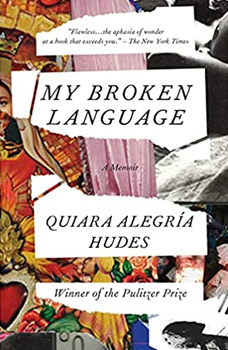Book Club Discussion Questions
Want to participate in our book club? Join BookBrowse and get free books to discuss!
Please be aware that this discussion guide will contain spoilers!
- Music is one of the primary languages explored in the memoir. Quiara steeps herself in many genres—classical, Afro-Caribbean batá, merengue, pop, and hip-hop. How do these distinct music styles serve different purposes in her life? What different kinds of music do you listen to and what spaces and memories do they conjure?
- The concept of "home" appears often: How do you think "home" evolves for Quiara as the memoir progresses?
- What kind of faith and spiritual practice is Quiara developing as she enters womanhood? Are the faiths she inherits and encounters at odds with each other? Can they coexist? Are we beholden to the faiths our families give us? What about the ones we are personally drawn to, outside the scope of our family's spiritual practice? Must we choose one single faith?
- The 80s and 90s were a distinct time in American history, and My Broken Language looks at the AIDS epidemic, the war on drugs, racialized notions of the "welfare queen," and the obscenity hearings in Congress. What Quiara sees and hears on the news does not always reflect her lived experience. What are your memories of those decades? Or, if you're younger, how does headline news today reinforce or contradict your lived experience?
- Language and dialect play an integral role in the memoir's style. Spanish words and phonetic spellings are laced throughout. What does Quiara achieve by mixing language in this way? What does it say about the ability of language to bridge—or not to bridge—cultural gaps?
- Quiara provides many descriptions of the female bodies she grew up around. They were various ages, shapes, hair textures, and skin colors. Cooking and dancing gave these female relatives frequent opportunities to express themselves in a physical way, and their body language helped shape Quiara's worldview. How would you describe the bodies you grew up around? What was the body language of your family spaces? Was there a "laying on of hands" in your community or family?
- The family elders in My Broken Language are predominantly female. Are the challenges these women faced still relevant today—such as migration, segregation, addiction, poverty, unequal educational and healthcare access? How do the women in your family and community take on leadership roles, big and small?
- My Broken Language is nonfiction, but Quiara relies on many techniques important to fiction writing. What sort of narrative voice has she chosen to use? She has chosen to portray her parents and relatives as adults seen from a child's point of view, rather than from that of an omniscient narrator. How does that enhance or detract from the book's impact?
- Every family has a story. If your family's story is not represented on library shelves or in the cultural zeitgeist, do you carry an extra responsibility to pass it on? Is sharing family stories freeing or daunting? Are there parts of your own family history you'd like to ask more about?
- What aspects of the author's story could you most relate to? What lessons or insights did you find in it?
- The Philadelphia setting is intrinsic to this book. Discuss the ways the setting functions as a character and how the author relates to it.
- How does the title, My Broken Language, speak to the entire memoir?
Unless otherwise stated, this discussion guide is reprinted with the permission of One World. Any page references refer to a USA edition of the book, usually the trade paperback version, and may vary in other editions.
